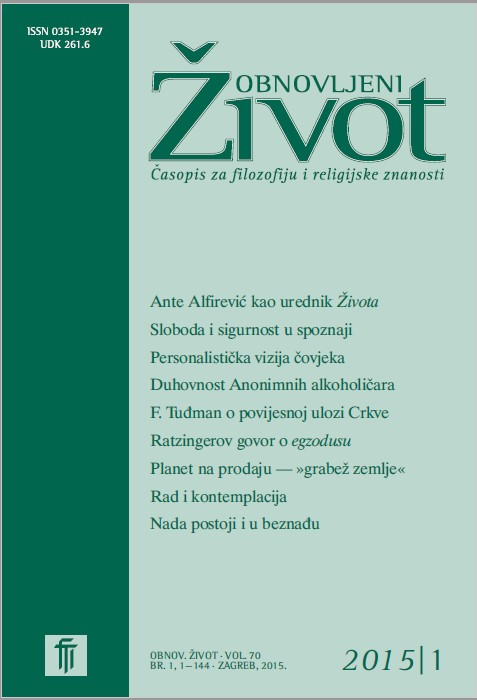Freedom and Security in Joseph de Vries’ Theory of Metaphysical Knowledge
Keywords:
Joseph de Vries, neoscholastics, metaphysics, epistemology, intellectual ethics, certitudeAbstract
The authors examine the role of freedom of intellectual consent in the theory of metaphysical knowledge as outlined in the works of Joseph de Vries, particularly from the aspect of the need for certitude in regard to metaphysical knowledge which is secured by metaphysical principles as an inherent necessity and which are imposed upon the mind by virtue of necessity. De Vries positions the justification and credibility of metaphysical statements on top of two pillars — one pillar being comprised of metaphysical principles and the other of intellectual ethics. Although De Vries sets out from the non–hypothetical epistemological requirement — not dependent upon extra–epistemic factors in the narrow sense — he accepts in the end the hypothesis of the ethical groundedness of epistemic normativity in the face of which the subject is free to give his basic consent. In conclusion, the authors suggest a framework for the contextualization of the scholastic approach in laying the groundwork for metaphysics.
Downloads
Published
Issue
Section
License
Jednom prihvaćeni članak obvezuje autora da ga ne smije objaviti drugdje bez dozvole uredništva, a i tada samo uz bilješku da je objavljen prvi put u Obnovljenom životu. Uredništvo će obavijestiti autora o prihvaćanju ili neprihvaćanju članka za objavljivanje.
Članci objavljeni u časopisu se, uz prikladno navođenje izvora, smiju besplatno koristiti u obrazovne i druge nekomercijalne svrhe.


